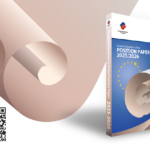European business reports 'reform and closing-up' in China, gives ‘reality check’ to Third Plenum Decision’s reform progress Go back »
2015-09-08 | All chapters
Beijing, 8 September, 2015 – The European Union Chamber of Commerce in China published its European Business in China – Position Paper 2015/2016 (Position Paper) today in which it strongly urges the Chinese leadership to make good on market reform promises that can firm up the nation’s softening economy while bolstering trust among European and international businesses.
This year’s Position Paper outlines the European Chamber’s view that China’s leadership must take action now to implement market-orientated policies if the country is to maintain moderately high levels of economic growth.
Despite GDP growth of seven per cent in the first half of the year, a spate of indicators tells of worrying underlying problems that need the Chinese leadership’s urgent attention. Aware of these economic challenges, the Chinese leadership has repeatedly said it will make the world’s second biggest economy less dependent on government spending and more reliant on organic corporate growth by letting market forces play out fully.
Yet two years since the promulgation of the Chinese leadership’s Third Plenum document known as the ‘Decision’, which emphasises how market forces ought to guide the next stage of its economic development, China is implementing few substantive market-driven reforms. To this end, in this year’s Position Paper, the European Chamber conducted a ‘reality check’ on the Third Plenum, based on the input of 37 of its sectoral working groups, to evaluate the progress of reforms. The consensus is that while reforms are happening in many areas, they are primarily of benefit to domestic Chinese companies.
On the one hand, the European Chamber believes that statements from Beijing have never been more encouraging to business: steps such as the introduction and subsequent reduction of areas of business not permissible to foreigners or ‘negative lists’, as well as a reduced Foreign Investment Industrial Guidance Catalogue; and the progress on the Comprehensive Agreement on Investment as well as the increase in free trade zones (FTZs) – these should all bode well for EU-China commercial relations.
On the other hand, the leadership’s overwrought concern with national security issues, expansive wording in a slate of recent legislations that often obfuscates the law, as well as the slow progress in the overall implementation of market reforms, is unsettling for business and causing a loss of confidence. It often seems that the reforms that are meant to benefit foreign companies are ‘ring-fenced’ in the country’s FTZs. European business is therefore asking to what extent China really considers it as a part of the reform effort.
"At best it leaves a mixed picture suggesting that part of China’s reform agenda includes new restrictions and that the country is even closing off altogether in some areas of its economy. In fact, never before has the European Chamber seen such a contradictory government agenda of reform and closing up. I am very concerned that reform momentum has been lost," said European Chamber President Jörg Wuttke.
“The Chinese leadership’s most pressing issue now is how to move ahead with the promised reforms that will right an unbalanced economy and solve the systemic issues that risk derailing its economic transformation. In short, China’s leadership will need the audacity to change,” continued President Wuttke.
The Position Paper shows that the areas that require immediate focus are: acceleration of financial system reforms; limiting state engagement in the economy; increasing market access for the private sector – including foreign business; fully committing to the rule of law; abolishing the Foreign Investment Catalogue and a simultaneous commitment to a nationwide roll-out of the Negative List; fostering an innovative environment; and leveraging the power of the internet for future growth.
About the European Business in China – Position Paper 2015/2016
The European Business in China – Position Paper (Position Paper) is the European Chamber’s primary annual publication. This 15th annual edition of the Position Paper offers Chinese policy-makers over 800 recommendations that draw directly from the knowledge and expertise of the European Chamber’s nearly 1,800 member companies.
The recommendations were formulated over a six-month consultative process by 37 separate working groups, covering 27 vertical industry sectors and 10 horizontal cross-industry sectors. The Position Paper contains general and specific recommendations to Chinese policy-makers, outlining suggested steps to improve the Chinese business environment. These cover general recommendations to improve the administrative and operational business environments, as well as recommendations aimed at identifying areas where China could benefit from giving greater market access to foreign-invested enterprises.
About the European Union Chamber of Commerce in China
The European Union Chamber of Commerce in China (European Chamber) was founded in 2000 by 51 member companies that shared a goal of establishing a common voice for the various business sectors of the European Union and European businesses operating in China. It is a members-driven, non-profit, fee-based organisation with a core structure of 45 working groups and fora representing European business in China. The European Chamber is recognised by the European Commission and the Chinese authorities as the official voice of European business in China.
For more information please contact
Xinhe Fan
- +86 (10) 64622066 ext.35
- xhfan@europeanchamber.com.cn


